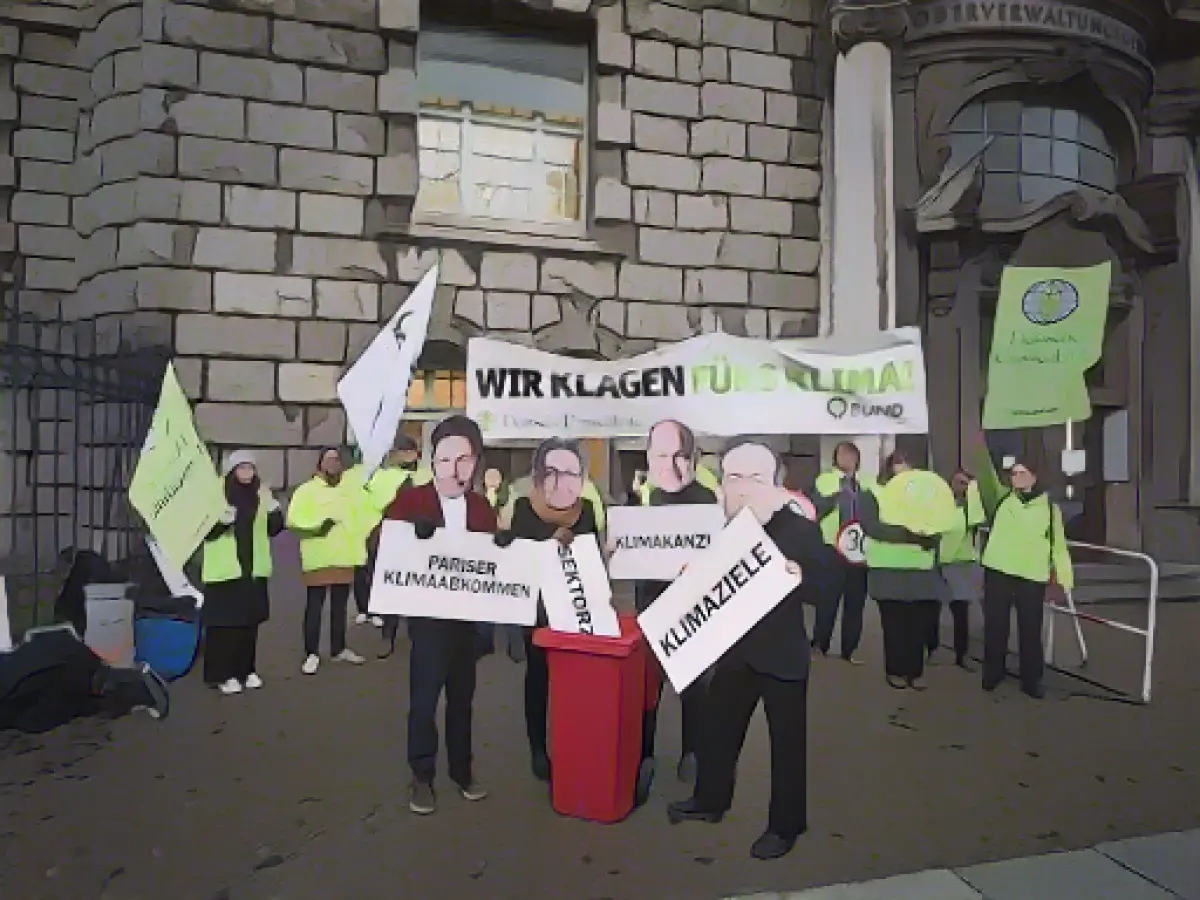Not enough climate protection: court condemns German government
Another setback in court for the traffic lights: the Berlin-Brandenburg Higher Administrative Court has ordered the federal government to launch immediate programs for more climate protection in transport and buildings.
The 11th Senate ruled in favor of complaints by Deutsche Umwelthilfe and the environmental association BUND. The plaintiffs welcomed the ruling and called for immediate action, for example with a speed limit. However, the government can appeal and thus postpone the effect of the ruling.
Targets for transport and buildings missed
At issue is the Climate Protection Act, which currently stipulates annual targets for each sector to reduce harmful greenhouse gases. If these targets are missed in individual sectors, Section 8 of the Act stipulates that the responsible ministry must take countermeasures with an immediate action program. The targets for transport and buildings were missed in 2022. However, the situation is complicated because the traffic lights have already agreed to amend the very clauses that are now being disputed in court.
The court has now determined that the federal government must take additional measures to ensure that the climate targets for the years 2024 to 2030 are met. The presiding judge, Ariane Holle, explained in the hearing that the government had amended its climate protection program in October 2023 in response to the excessively high emission levels. However, this was more of a medium to long-term instrument. The immediate action program called for in the law is something else.
"The immediate action program and the climate protection program are two different instruments," said Holle. The immediate action program is intended as a concrete reaction to a failure to meet targets in order to ensure that the targets are met in the following years, the presiding judge explained the ruling. The court rejected the Federal Government's argument that the action was not admissible.
With the agreed amendment to the clauses now being disputed in court, the coalition wants to ensure that mandatory annual targets no longer have to be implemented for each sector, but that this only applies to compliance with the overall climate protection targets. However, this reform has not yet been decided and is highly controversial.
The climate targets themselves are to remain unchanged: The law stipulates that greenhouse gases must fall by 65 percent by 2030 compared to 1990 levels. A good 40 percent reduction was achieved last year.
Environmental Action Germany: "We are very pleased"
On behalf of Deutsche Umwelthilfe, Managing Director Jürgen Resch told the German Press Agency: "We are delighted because we have been waiting a long time for this ruling. Now it comes just at the start of the World Climate Conference in Dubai. This is no coincidence." The German government has been certified as not meeting its own climate targets.
"This is a very clear call not to use further sleight of hand to avoid taking action," said Resch. All measures that are reasonable and cost nothing or even bring in money must now be taken.
Resch mentioned a speed limit on freeways and an immediate renovation program for public buildings such as schools or daycare centers as well as the reduction of climate-damaging subsidies, which in his opinion could bring the necessary money into the public coffers. He expects that the reform of the Climate Protection Act will not happen and that the federal government will not go into revision. "No, Germany must set an example now," said the association representative.
However, the plaintiff's lawyer Remo Klinger conceded that an appeal to the Federal Administrative Court would initially postpone the effect of the Berlin ruling. "I expect the appeal to be lodged by the federal government for the time being," said Klinger. However, he also expects success before the Federal Administrative Court.
- Despite missing the climate protection targets for transport and buildings in 2022, the German government must launch immediate programs for more climate protection, as ruled by the Berlin-Brandenburg Higher Administrative Court due to complaints from environmental groups.
- The court's judgment emphasizes the importance of an immediate action program to ensure that climate protection targets for the years 2024 to 2030 are met, distinguishing it from long-term climate protection programs.
- Environmental organizations, like Deutsche Umwelthilfe and BUND, have called for immediate action, proposing measures such as speed limit enforcements and renovation programs for public buildings, to help achieve climate protection targets.
- The German government can still appeal the court's judgment, postponing the effect of the ruling but not avoiding addressing the need for climate protection measures in transport and building sectors.
- The overall climate targets remain unchanged, as per the Climate Protection Act, requiring a 65% reduction in greenhouse gas emissions by 2030 compared to 1990 levels.
Source: www.dpa.com








